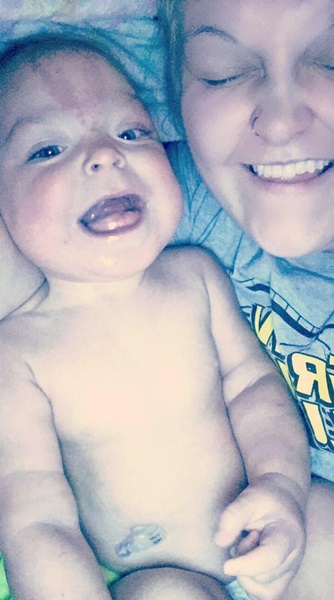Parents of Baby Born With Adult-Sized Tongue Place Full Trust in God — and Get Rewarded

A baby in South Dakota, U.S. was born with a very rare genetic disease that made her have an adult-sized tongue.
Despite this, her parents remained undaunted and put their full trust in God that their child would be able to overcome her genetic disorder — and she did, thanks to God and her doctors.
Madison Keinow, the mother of baby Paisley who was diagnosed with the so-called "Beckwith-Wiedemann Syndrome," told Fox Detroit how her doctor found through ultrasound during her pregnancy that the baby she was carrying had her tongue sticking out of her mouth.
At 26 weeks into the pregnancy, her doctor confirmed that her child had the genetic disease, which makes some parts of her body grow faster or longer than normal.
In baby Paisley's case, her tongue became enlarged, a condition scientifically known as "macroglossia." Aside from this, the child also has some complications with her abdominal organs, her kidneys and even her blood sugar level.
Despite all these health problems facing her child, Madison never lost her faith. She left her life and the life of her baby completely to God.
"Jesus Christ never thought Paisley was perfect without Beckwith-Wiedemann," Kienow said, as quoted by Fox Detroit. "I ask, 'why us,' but now I know why. Because we're strong, and because we have love."
Her prayers were recently answered when a father-son team of doctors, David and Patrick Munson of Sanford Health in Sioux Falls, South Dakota, offered to surgically reduce the size of baby Paisley's tongue. They also sought to address her other Beckwith-Wiedemann symptoms including an umbilical hernia.
Now, the 17-month-old baby can smile, thanks to the surgeries conducted by the doctors. She is now being carefully monitored to make sure that she does not develop tumours, especially during adolescence.
Madison, for her part, chose to give back. She is now a pre-medical student, and sharing her experiences with other mothers through social media on how to deal with young children with rare genetic condition.











